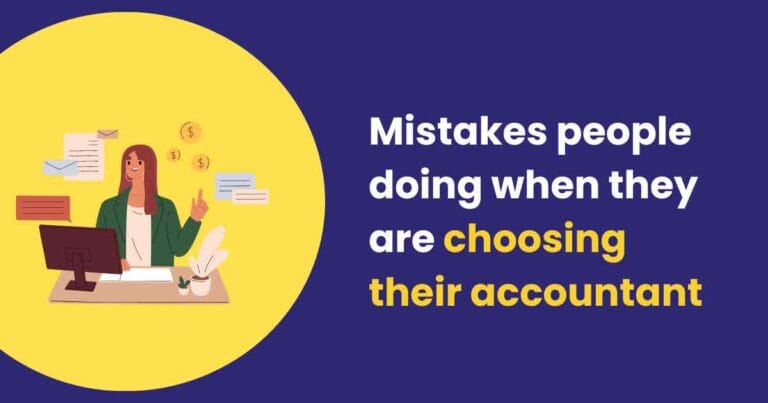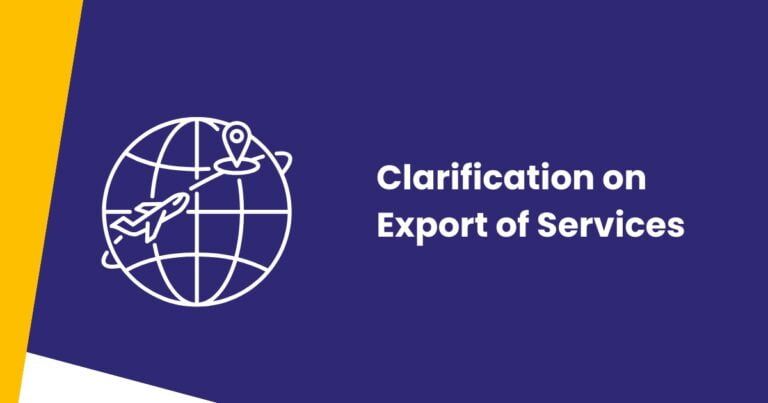Choosing an accountant is an important decision. A good accountant saves you money on taxes and helps your business grow. A bad choice can cost you in many ways.
Many people make simple but serious errors when picking an accountant. They end up with someone who lacks the skills, experience, or services they need. I made these mistakes before too!
In this blog, I will explain the top 10 accountant choice mistakes people make so you can avoid them.
First, let’s review why having the right accountant matters so much.
What Accountants Do
Taxes
- File personal and business tax returns
- Find legal deductions to lower your tax bill
Financial Reporting
- Prepare financial statements
- Analyze profitability and spending
Business Growth
- Advise on business structure
- Manage payroll, bookkeeping, audits
- Identify growth opportunities
When you pick the wrong accountant, you miss out on money savings and helpful insights. But finding the right one takes effort and know-how.
Not Defining Your Needs
I made this mistake first when I started my small retail company. I guessed what I needed from an accountant instead of defining it. I ended up paying for services I did not really use, while missing some that could have helped me a lot in the first year.
To avoid this error:
Before you search for an accountant, make a detailed list of everything you need help with:
- Taxes – personal and/or business
- Bookkeeping
- Payroll
- Reporting
- Audits
- Financial analysis
- Growth planning
Know exactly what you want upfront, so you pick someone well suited.
Choosing Based on Cost Alone
Choosing the cheapest accountant often backfires. Bargain rates usually indicate less experience and poor service. An unqualified accountant can make major tax mistakes or give bad advice that costs you way more long-term.
Here is what to do instead:
When comparing accountants, balance fees with credentials, specialty areas and services. Get a sense for the value delivered, not just price. Review qualifications along with costs before deciding.
Not Verifying Credentials
Failing to verify an accountant’s credentials leaves you at risk. Always validate licenses, education, certifications and training before hiring.
Be sure to check:
- Certified Public Accountant (CPA) license
- Educational degrees & accounting institutes attended
- Specialized certification in areas like taxation
- Years and types of experience
Confirm they have the proper skills and training to understand your specific needs.
Not Checking References or Reviews
Past client experiences reveal a lot. But many people skip this background check when evaluating accountants. That opens you to major blind spots.
Take these steps instead:
- Ask for 2-3 client references you can call directly
- Read online reviews on Google, Facebook, and other review sites
- Check for complaints with Better Business Bureaus
This feedback will tell you if past clients have been satisfied or had issues to be concerned about.
Not Understanding All Services Offered
Accountants differ widely in services. Some handle only taxes. Others offer auditing, financial analysis, business valuations, growth planning, and more.
- Make a list of every service you can outsource
- Find an accountant who provides all of them
This ensures you get “one stop shopping” without having to coordinate multiple firms.
Not Examining Engagement Terms
Before formally hiring any accountant, get full details on how they will engage. These terms outline:
- Exact services provided
- Billing rates & payment processes
- Guarantees made to you
- How they handle confidentiality
- Potential conflicts of interest
Review engagement carefully before signing and onboarding an accountant.
Not Establishing Regular Meetings
Your financial needs change quarter to quarter. Failing to meet with an accountant regularly leaves you in the dark on savings opportunities.
Make sure to:
- Agree on a routine schedule upfront
- Monthly/quarterly advice sessions
- Tax planning meetings before filing deadlines
Consistent communication ensures you get proactive insights and guidance.
Not Evaluating Industry Experience
The best accountant for a doctor differs greatly from an ideal choice for a retailer. Seeking generalists instead of industry-specialized experience is an expensive oversight.
To avoid issues, ask potential accountants about:
- Industry background & specialties
- Years working with companies like yours
- Training in your sector’s regulations
Someone familiar with your specific business niche can save you more and provide tailored growth insights.
No Personal Rapport
You want an advisor who “gets” you. But many people ignore personal rapport when evaluating accountant options. This makes for awkward engagements and miscommunications.
Do this instead:
- Have a conversation to see if your personalities click
- Look for similar communication styles
- Consider comfort level in asking lots of questions
- Confirm they are responsive to calls/emails
A personal connection makes it easier to work together in high stakes situations each year.
Not Re-Evaluating Periodically
As your business changes over time, you may outgrow your accountant’s capabilities. Or you might simply want more specialized support. But failing to re-evaluate fit leads to sticking with mediocre services longer than needed.
Here is what to do:
- Annually, review if your accountant still fits your growth needs
- Consider switching firms to get elevated expertise if required
- Seek a new accountant as soon as you feel underserved
Don’t get stuck with an average performer. Make sure your accounting advisor evolves along with your financial needs.
Conclusion
I hope this article helped you learn key mistakes people make when engaging an accountant. Avoiding these common errors ensures you find the right expert to maximize deductions, savings and business growth opportunities. With a strategic accounting partner, you can confidently make smart financial decisions for years ahead.
FAQs
Ideally your accountant will be a Certified Public Accountant (CPA). This license proves extensive training and accounting expertise across taxation, auditing, reporting and business advisory.
Schedule review meetings at least every quarter to get personalized advice on deductions, financial performance and growth planning. For more complex business needs, monthly catch-ups are wise.
Savvy accountants have in-depth knowledge of the latest tax codes and deductions you can claim. They ensure your taxes are filed completely, accurately and legally to save you the most money owed.





